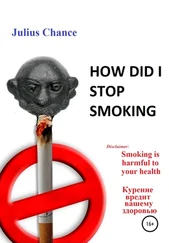This decision was based on the belief that if I were to gain A-levels I could do a degree, and if I did a degree, I could do a job where I would not need to get a wash when I came home from work, like Clive’s dad. In my mind, I could end up doing something interesting, taxing, and where you wore a suit: perhaps be a solicitor. No ordinary, boring solicitor, but more of a Petrocelli-type, caravan-dwelling advocate, the sort of lawyer who stood up for the innocent poor who couldn’t pay for justice. If you never saw the brilliant series starring Barry Newman, it is a great indication of how times have changed. Who would trust a lawyer now who lived in a caravan?
To be a lawyer was an impressive aspiration within my family, so I perpetuated the idea that I wanted to train to be a solicitor for many years. In fact, I’m sure there are still some family members who think it would have been better to have a lawyer in the family than a comedian.
However, my attendance at sixth form lasted all of one day. At that time, anybody staying on at school sixth form only received family allowance. This was the princely sum of £6.50 per week, as opposed to the £24 per week afforded by the government to all those on a Youth Opportunity Scheme. It was 1982, the recession was beginning to bite, and there were very few jobs around. But the government policy guaranteed all 16 to 18 year olds a place on one of these schemes.
Along with this, when I arrived at the sixth form wearing brand-new jeans, I was promptly informed that jeans were not acceptable so I would have to get some trousers.
At the time, Eddie had left home to take up residence in a flat in Southgate, an estate built to look like washing machines and with about as much practical application as a washing machine when it came to somewhere to live; Kathy was training to be a nursery nurse; and Carol was on a Youth Opportunity Scheme. My dad was trying to make a living making and selling wrought-iron furniture, such as telephone tables, which were such a staple of every home at the time. The idea was that when you used the phone you sat sort of side-saddle at the table. No wonder people of a certain age seem to droop as they get older – for a large part of their life they are having conversations on the phone at a ridiculous angle. My mum had a part-time job washing dishes in the kitchen of a factory canteen on the industrial estate. In essence, I didn’t feel I could return home and say to my mum I required new trousers. Instead, I felt I should be bringing money into the household and paying my way.
I had already applied for a job at the main factory in Runcorn: ICI. Along with my mate, Vic, I received a letter saying I had the got the job, to start in the second week of September. ICI was a huge chemical plant and the job in question was as a mail lad. That was the actual job description; it was a job for a ‘lad’ – girlies need not apply. And to my knowledge, none of them did. Most followed other paths, like my then girlfriend Denise, who trained to be a hairdresser. At least the old system made things very simple, as I’m sure if the ‘mail lad’ job were to exist at all in the world of emails it would be called something like ‘communications distribution individual’.
So I left school and went to work delivering mail at ICI. This involved getting a bus at 6.30 a.m. to arrive at work for 7. We would then collect the bicycles that were left at the security gate each evening and ride down the hill to the mail office. Getting up early was worth that ride downhill. Everyone should start the day going downhill on a bicycle. It was great fun – apart from the rain and snow and cold. OK, so it was great about eleven days of the year, but they were still great days.
We’d finish by 3 o’clock and, two nights a week, I would then go to night school in Widnes to study A-levels in English and Law. I may not have been in the sixth form, but I didn’t want my education to stop.
One day, on the way home from ICI, and while still wearing my steel-cap ICI safety boots, my ICI safety jacket and my ICI safety trousers, I called in to the school sixth form. It was there that I bumped into Mr Logan. Mr Logan had been my English teacher during my O-level period and would have been my A-level teacher had I stayed in the sixth form. He asked me how I was getting on, and I explained that I was working and doing A-levels at night school. He asked if I’d consider returning to the sixth form in January, but as I was then earning £42 a week, to leave that to return to a family allowance of just £6.50 a week didn’t seem viable.
In reality, I was beginning to have doubts about ICI and the future. I remember one day I fell into conversation at the plant with one of the men who always seemed to be walking around wearing boiler suits and hard hats, but never actually doing much. He was a friendly man in his late fifties with a warm face and a frame that suggested he enjoyed a roast dinner, and a disposition that suggested he had never seen how that roast dinner was made. He had worked at ICI all of his life.
‘You’ve got a job for life here, son,’ he informed me proudly, as he lit a cigarette, completely ignoring the No Smoking signs and the miles of pipework around his head carrying flammable chemicals. ‘Yes, son, no reason you won’t be taking your pension here.’
I remember looking around at the myriad pipes transporting chemicals all over the plant, and thinking, ‘Is this the view I have to spend the rest of my working life looking at?’
I think one of those great things about advice is that it is often given to make one point but ends up making entirely the opposite one. I could think of nothing worse than giving my life away so cheaply. Some people are lucky enough to find contentment in such security, but for me it felt as if someone was pouring water over my bonfire so the flames would not get too high. To stay in the same place of work all my life, get married, live in the same area, go to the same pubs, see the same faces until one by one we popped our clogs was like being handed a life of limitation that I just couldn’t accept. It’s a life that suits many people down to the ground, and in many ways I have always been envious of them. I never thought I was better than anyone else; I just knew I wanted something different. The problem was, I wasn’t sure what that was.
In the discussion with Mr Logan I had told him that the only option for me to return to full-time education of any nature was to take a part-time course at the local further-education college. If you were able to study part-time there, then you were able to claim unemployment benefits, which would mean £18 a week rather than £6.50. Still a long way behind the £42 a week I was currently earning, but at least a step to bridge the gap. The difficulty was that you were not allowed to study in school sixth forms part-time, only in FE colleges. If you were studying in a school, then you had to be classed as a full-time student for the school to receive the payment from the local education authority to cover your attendance. Mr Logan had said he would talk to the headmistress, Ms Philips, and see if there was any way around this.
I came into school a few days later to have a conversation with them both. The reality was stark and clear: I could not continue to do night-school A-levels one night a week over one year and realistically expect to pass. But, on the other hand, I couldn’t afford to leave my job. After some deliberation, it was agreed that the school would give me a letter that I could take to the unemployment exchange to say that I was studying part-time. Once they accepted this and guaranteed I would receive my dole, then I would leave my job.
The school was basically gambling that the unemployment office would not get in touch with the education services who, had they found out I was only studying part-time, would not have given the school the full remittance for my place, while Ms Philips would have faced serious questions about why she had told lies.
Читать дальше











